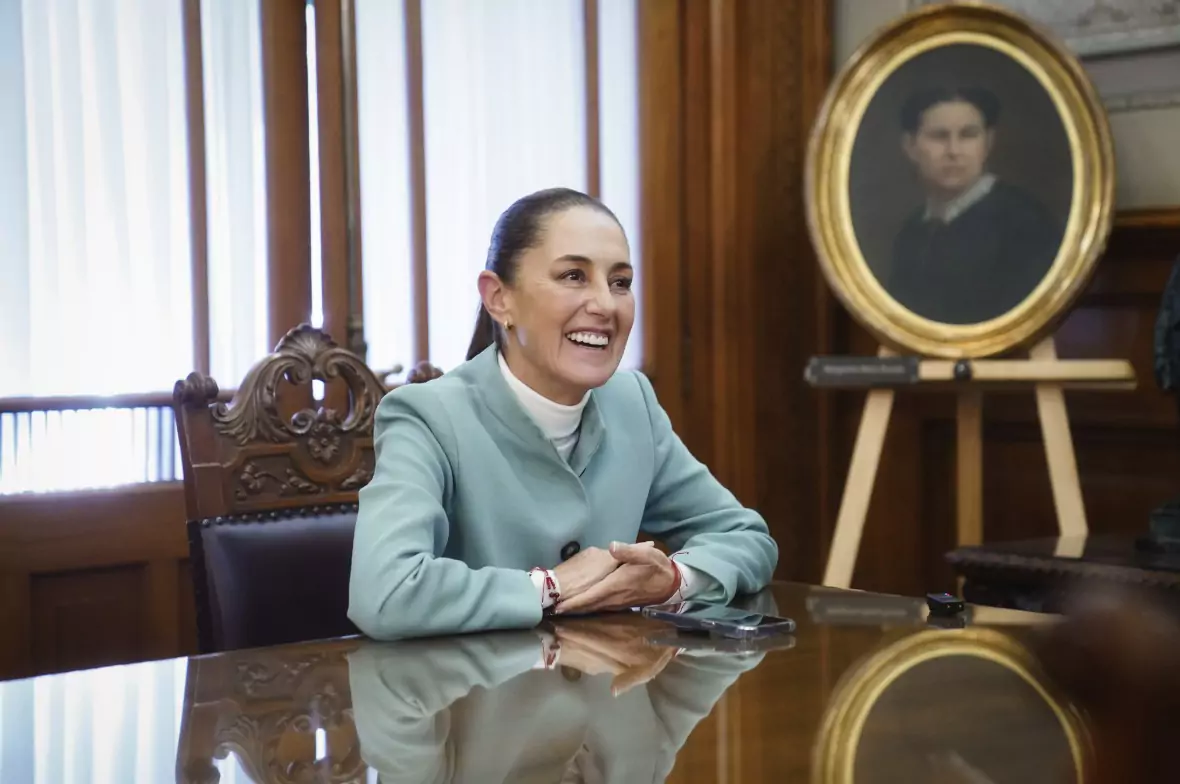Despite setbacks for women in power in 2024, Forbes’ list of the World’s 100 Most Powerful Women highlights an extraordinary group of leaders and internationally recognised figures who wield an impressive €31.4 trillion in economic influence and impact billions of lives worldwide.
It may still be a man’s world, but women are increasingly carving out their space, commanding respect, attention and followers across the globe. This is exemplified by Forbes’ 2024 list, where each woman is a force to be reckoned with.
Consider Mexican President Claudia Sheinbaum’s historic rise to power, marking a turning point in her nation’s history. Sworn in as Mexico’s first female president in October and ranking fourth on Forbes’ list, behind President of the European Commission Ursula von der Leyen in first, President of the European Central Bank Christine Lagarde in second and Italian Prime Minister Giorgia Meloni in third, Sheinbaum’s inauguration was met with jubilant chants of “Presidenta!” echoing through the legislature. At 62, Sheinbaum now leads the world’s 12th-largest economy.
“Many of us were told a version of history since we were children, which wanted us to believe that the course of humanity was led only by men. But little by little, this vision has been reversed,” Sheinbaum declared at her inauguration. “It is time for women.”
Other influential women include 75th-placed Malina Ngai, who has become Group CEO of AS Watson, the world’s largest health and beauty retailer, and Melinda Gates, who climbed to 8th after committing nearly €1 billion to projects that seek to empower women globally. Caitlin Clark, celebrated for transforming women’s sports, makes her debut on the list in 2024 at No. 100.
The world of entertainment is well-represented by US names, including singer-songwriter Taylor Swift (No. 23), Oprah Winfrey (No. 33), and Beyoncé Knowles (No. 35). The US’ Ruth Porat, President and Chief Investment Officer of Google’s parent company, Alphabet, was the highest-ranking figure from the technology sector, while compatriot Abigail Johnson, Chairman and CEO of Fidelity Investments, topped the list for finance.
While there is reason to celebrate these leaders, the global outlook for female leadership remains fragile, and women’s representation in high-powered roles is increasingly precarious. Kamala Harris, once ranked 3rd, has fallen off the list following her unsuccessful US presidential bid, while prominent leaders such as Taiwan’s Tsai Ing-wen and Slovakia’s Zuzana Čaputová also exited leadership roles this year and no longer rank among the World’s Most Powerful Women, according to Forbes.
A G7-wide survey from the Reykjavík Index further highlights declining confidence in female leadership across politics and business.
“The support of female leadership is not going to happen just because we presumed history would make the world more equal,” notes Michelle Harrison, the Index’s founder. “Women are experiencing a series of regressive forces that make their ability to achieve and retain power harder, not easier.”
Forbes evaluated its candidates using four key metrics: financial power, media presence, social impact and spheres of influence. The resulting list features women who are formidable forces across politics, business, technology and beyond.
To explore the full list, click here.
Monaco Life is produced by real multi-media journalists writing original content. See more in our free newsletter, follow our Podcasts on Spotify, and check us out on Threads, Facebook, Instagram, LinkedIn and Tik Tok.
Photo source: Claudia Sheinbaum, Instagram
